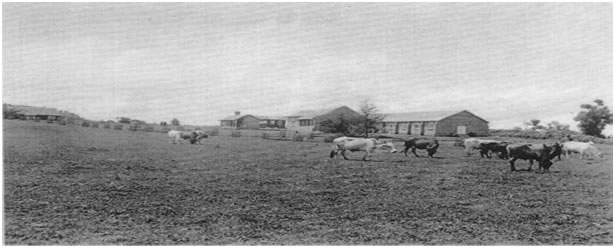Maua Methodist Hospital (MMH) is an institution of the Methodist Church in Kenya, established in 1928 by British Methodist Missionaries in obedience to the great commission of Christ (Matthew 28:19-20). From that humble and modest start, the hospital has grown to be a Regional Referral Hospital in Meru County, providing holistic services to a wide catchment area and offering training of health care workers. MMH has also become an important hub for community health and development services.
The General Superintendent of the East Africa District of the Methodist Church observed in his 1918 annual report the need for a healing ministry in Meru. In response to that report, the British Methodist Church approved the building of a 50-bed hospital in 1928. Construction was done in the next 2 years and the hospital was officially opened on July 15th 1930. The facility was given the name ‘Berresford Memorial Hospital’ in remembrance of Thomas Berresford, a young man who had planned to become a doctor but unfortunately died at the age of 22. The family donated the university fees for Thomas to the Methodist Church to build a hospital.

We have aptly given the main hospital driveway the name Berresford Avenue in honour of the Berresford family who have made a tremendous contribution to the medical ministry in Maua.
The need for training of health care workers was recognized early as a way of sustaining staffing in the health care ministry. A programme to train dressers was started in 1942 and this cadre was upgraded to nursing care staff later. The certificate programme of Enrolled Community Nurses was started in 1976 under the leadership Sister Meg Bailey.
The School of Nursing was approved for training of nurses at Diploma (KRCHN) level in 1996 and has become one of the best Nursing Schools in the country attaining near 100% pass rate every year. The School has now diversified its training programmes to include KRCHN, Health Information/Records management courses, and many others. It was renamed Methodist College of Health Sciences (MCHS) in March 2019.
The Hospital undertook a preventive health care approach from early on in its work. Initially, the midwife Sr Muriel Chalkley went into the community talking to the chiefs and various groups, begging mothers to come and deliver in the hospital. Some major achievements in the 1970s were the training of Community Health Workers and Traditional Birth Attendants. The Community Health Department (CHD) was established in 1976 under the leadership of Sister Meg Bailey.
In the last 4 decades, the hospital has added many other items to its list of services. This has included expanding the range of surgical procedures, specialized surgical procedures such as orthopaedic surgery by visiting specialists, eye care services by visiting ophthalmologists, optical services, Comprehensive Care Clinic & Palliative care, expanded laboratory services, X-ray services, visiting Ear Nose and Throat (ENT) and paediatric specialists, internal medicine, obstetric and gynaecology (OB/GYN) services, doctors internship, rotation for doctors from universities around the world and a private outpatient clinic for those who would like to consult a doctor by appointment.
Physical infrastructure has also been improved over the years. Through partnership with overseas works teams, the hospital has installed 2 water boreholes, a dependable water supply from the hills that feed a high-level water tank, fire hydrants and many buildings. The Advance Team continue to do valuable work in developing a hospital physical master plan.
In recent times, many other health care providers have come onto the scene around the hospital. These include public health facilities and private health care facilities. The hospital seeks to work with all these providers in partnership that would produce synergy and give the community good local comprehensive health care.
The strategic plan 2019 – 2024 has been developed at a time when the global community has adopted the sustainable development goals (SDGs) and re-launched primary health care (PHC) as the means to the attainment of SDG 3 on ‘healthy lives and promoting wellbeing for all’. The Government of Kenya has launched the “Big Four Agenda” which includes universal health coverage that has the ambitious goal of ensuring that every Kenyan has access to affordable, quality health care. We believe that this noble goal will be achieved with government leadership that embraces partnership with the Church Health Services.
